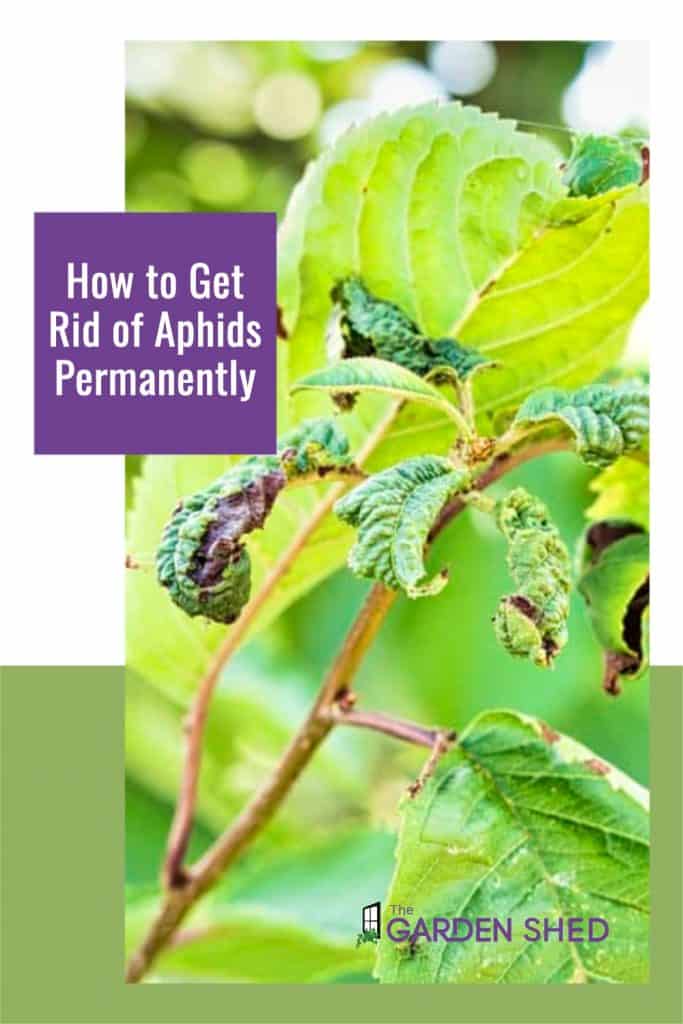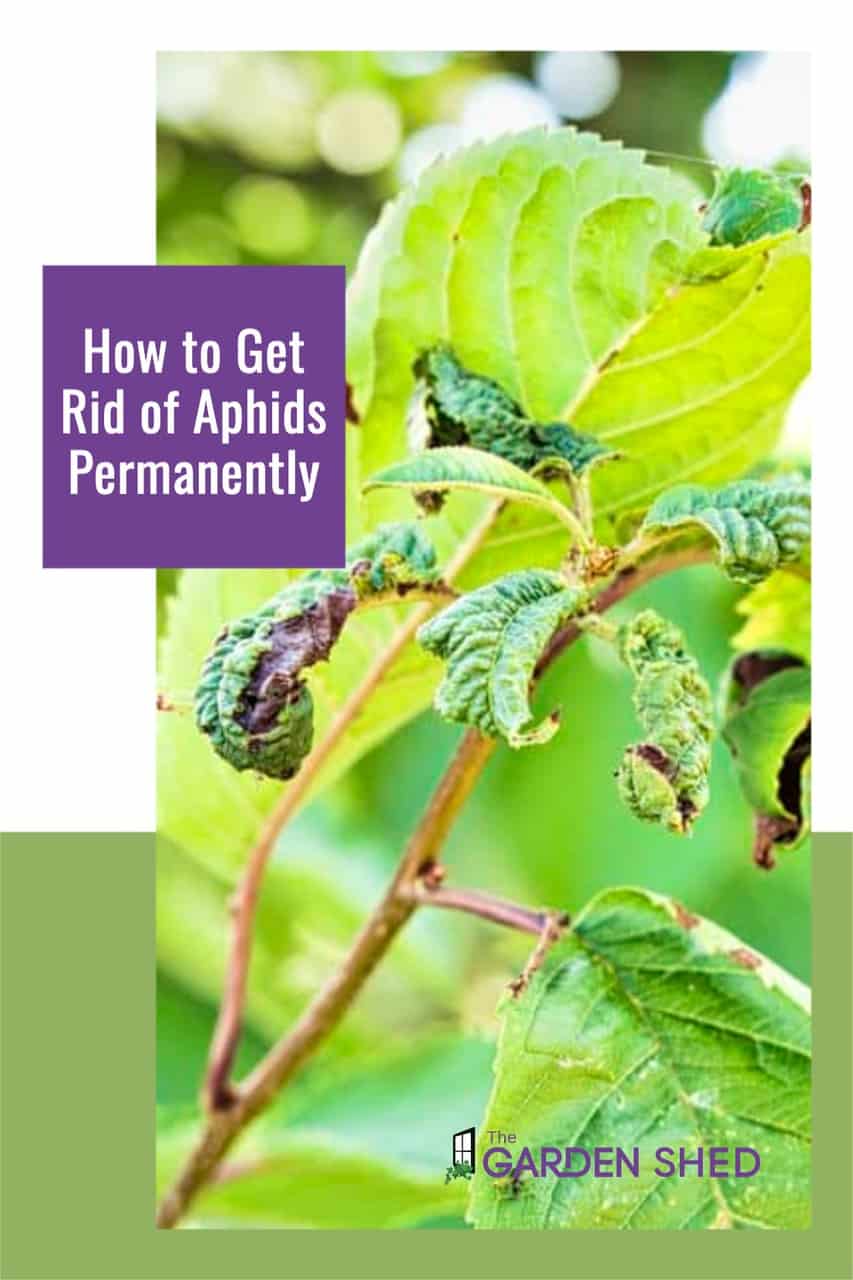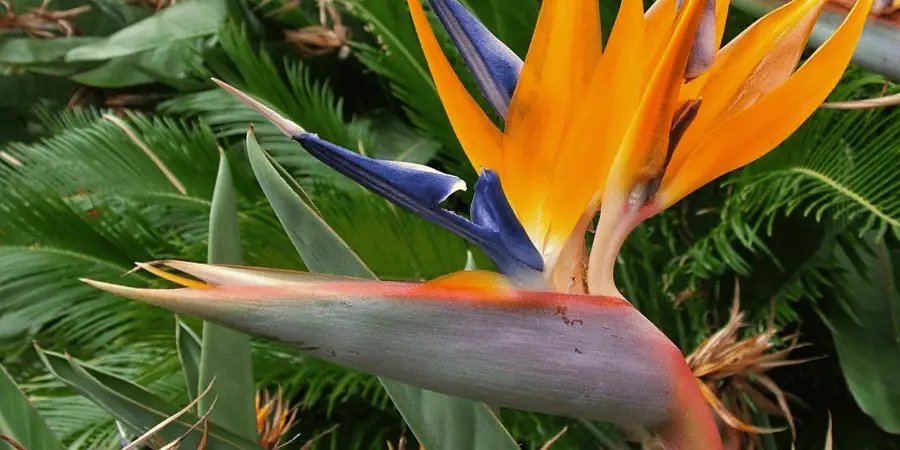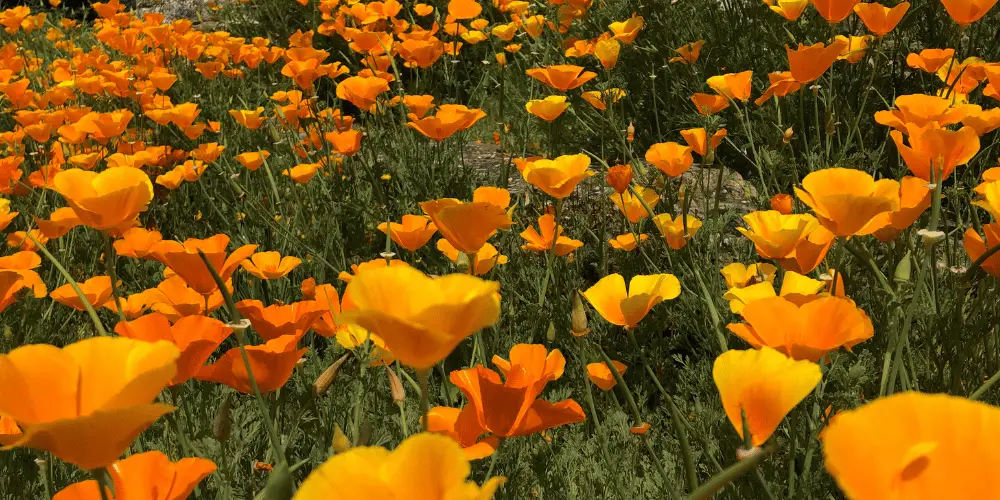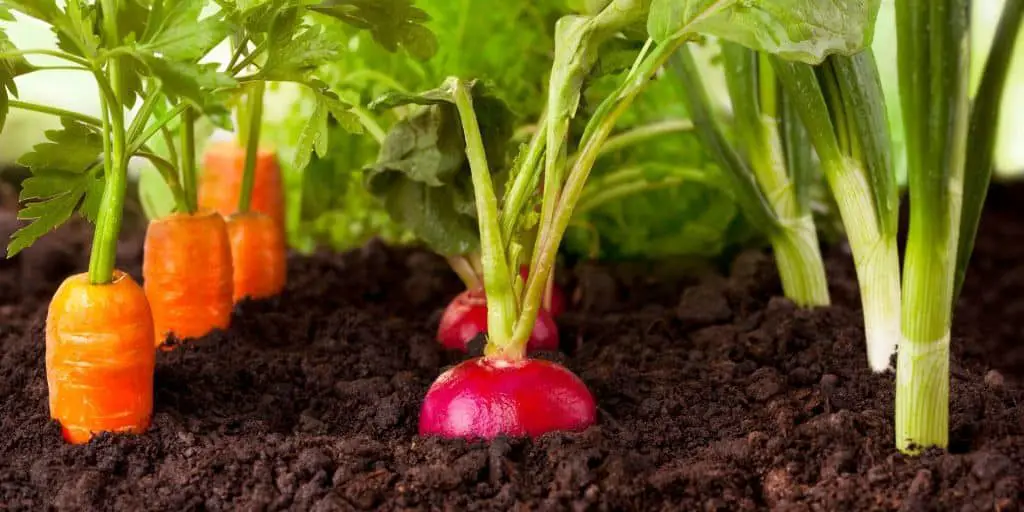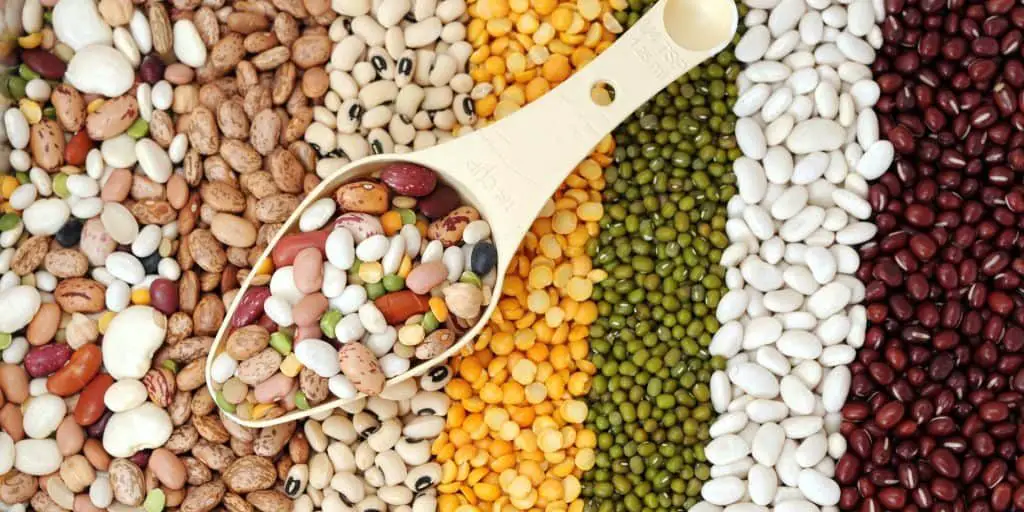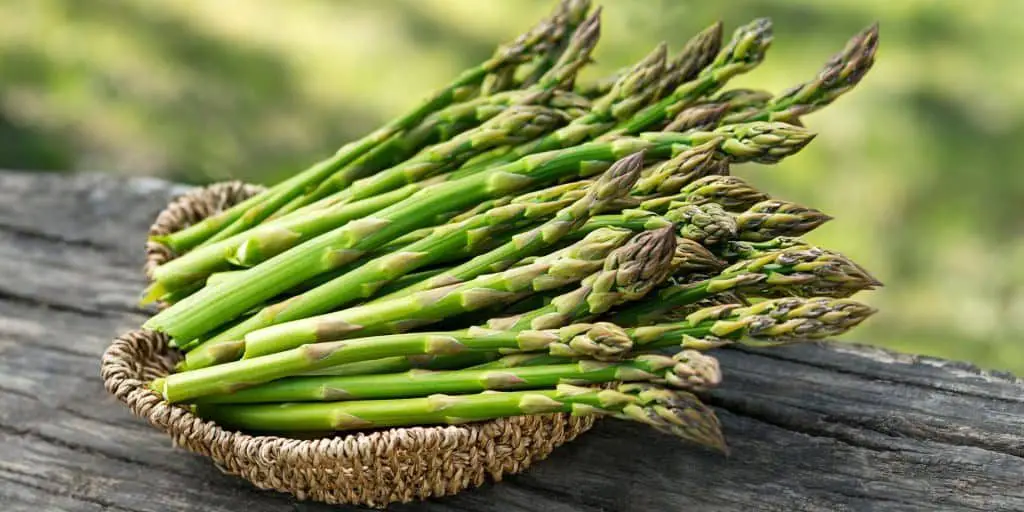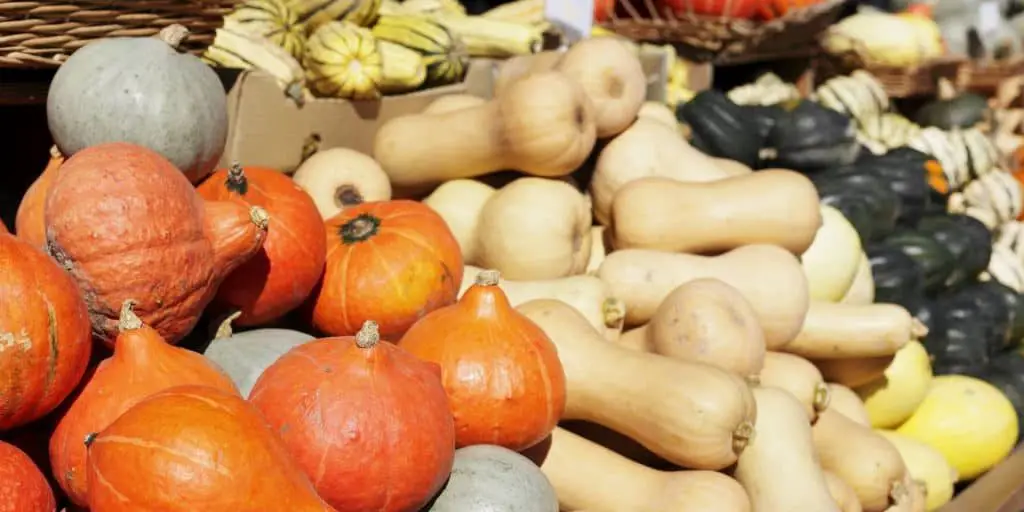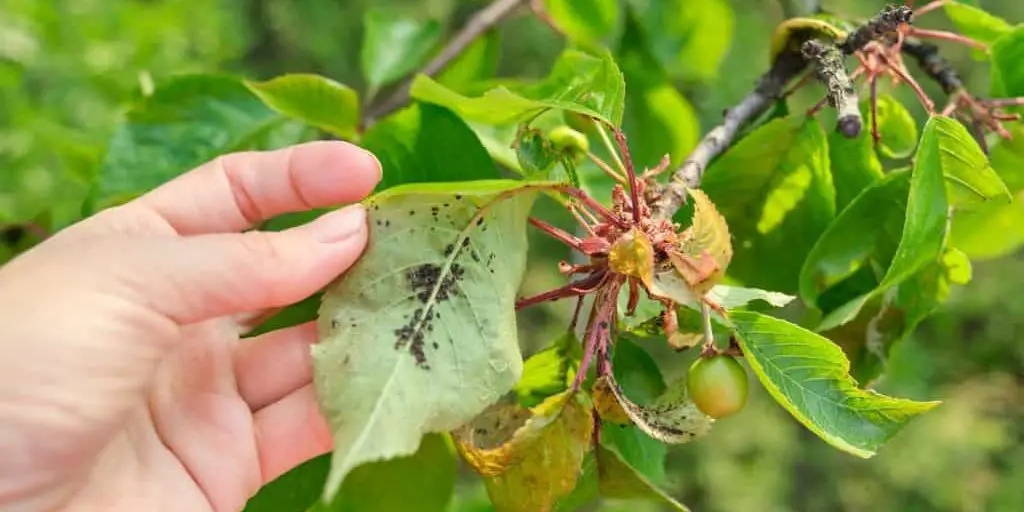
How to Get Rid of Aphids Permanently
Aphids are a common garden problem. Fortunately, there are many ways to get rid of aphids permanently.
What Are Aphids?
Aphids are small insects that pierce stems, leaves, and other parts of plants to withdraw the plant sap. Other names for aphids include plant lice, garden lice, and greenflies.
How to Identify Aphids
There are a variety of species of aphids. They have soft pear-shaped bodies and long legs. In size, they range from 1/16 to 1/4 inch long. Depending on the variety, they are green, red, brown, yellow, or black in color. The green varieties are more difficult to spot because they tend to blend in with the leaves. Incredibly, there are more than 4000 species of aphids.
You will often find aphids on the underside of leaves. Aphids also like to cling to the base of tightly-packed plants like daylilies, or in the center of clumping plants like broccoli.
Unfortunately, aphids reproduce very quickly. According to the Entomology Department at the University of Kentucky’s website, aphids mature in 7 to 10 days and are then ready to produce more aphids. Each aphid is capable of producing 40 to 60 offspring. Then those offspring deposit eggs and the cycle begins again. Obviously, a full-blown aphid infestation can occur fairly quickly.
How to Identify Aphid Damage
Yellow Leaves
Low numbers of aphids do not do much damage. Large infestations, however, can turn leaves yellow and stunt the growth of young shoots. If the leaves of your plants are turning yellow for no apparent reason, aphids might be the culprit.
Honeydew
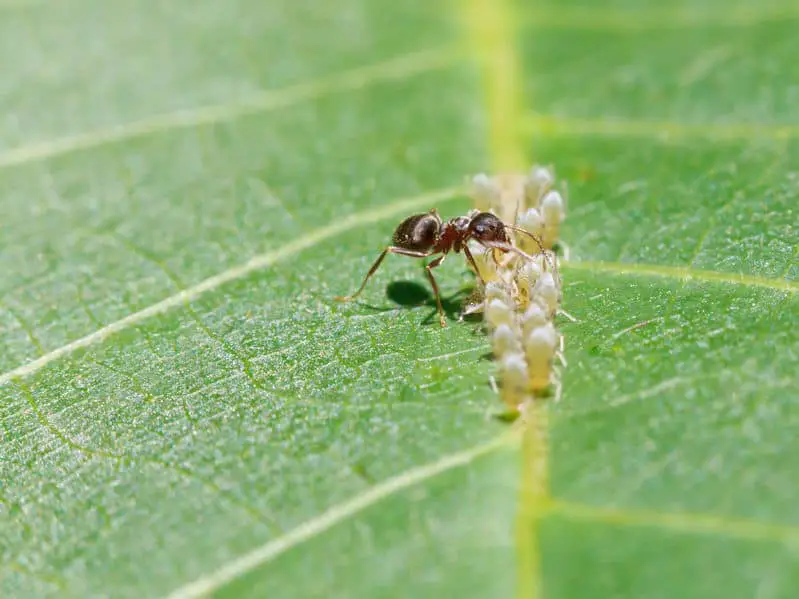
While it sounds appealing, honeydew is just the opposite. Aphids often produce honeydew, which is a sticky substance that often turns black with fungus. To make things worse, ants love to feed on honeydew.
Misshaped, Shriveled or Curled Leaves
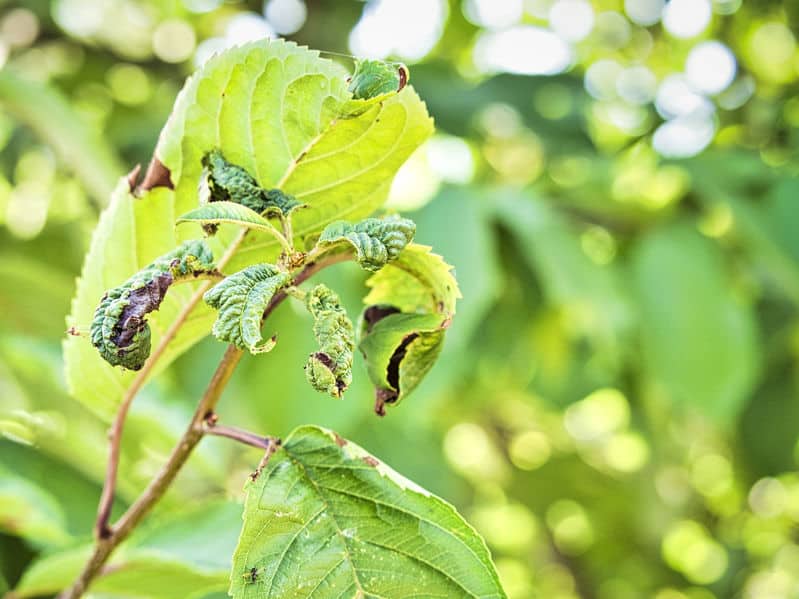
An aphid infestation can result in leaves that are stunted, shriveled, or curled at the edges. Unfortunately, this leaf damage may not be irreversible, even if you get rid of the aphids.
How to Get Rid of Aphids Permanently and Naturally
1. Remove Aphids by Hand
While it might not be the most pleasant experience, removing aphids by hand will ensure those aphids no longer feast on your plants. Obviously, wearing gloves will make this task less offensive.
2. Plant Companion Plants that Repel Aphids
Plants in the allium family, such as onion and garlic, are effective in repelling aphids. Chives and catnip are also especially useful in repelling aphids from the garden.
3. Plant Companion Plants that Attract Aphids
Some gardeners make use of decoy plants to attract the aphids away from plants receiving damage. Plants in the brassica family, such as collards and kale, work well as decoy plants. These tough plants will attract aphids away from your more susceptible plants and will receive little damage.
4. Use Beneficial Insects that are Natural Enemies of Aphids
Three insects are particularly effective in getting rid of aphids in the garden – lady bug, green lace wing, and hoverflies. They will naturally feed on the aphids and greatly reduce their population. You can buy live insects or attract them to your garden naturally by planting plants that attract those particular insects. These plants include Lemon Gem marigold, lavender globe lily, dill, fern leaf yarrow, and carpet bugleweed.
5. Attract More Birds to Your Garden
Bird baths, bird feeders, and plenty of trees will attract birds to you garden. In turn, those birds will feed on the aphids. Adding to the biodiversity of your garden is always beneficial to overall garden health.
6. Apply High Pressure Water to Get Rid of Aphids
Hosing down your plants with high pressure water will either kill the soft-bodied aphids as a result of a direct hit or will drown them. Be sure to spray the underside of the leaves where aphids like to cling. Repeat the process every few days until you have eliminated the aphids.
If you are using water to get rid of aphids, you might want to invest in a Bug Blaster nozzle. It is a specially designed hose nozzle that emits a powerful 360 degree flat spray of water that kills aphids on contact. The slim design allows you to easily insert the Bug Blaster into and under foliage, ensuring that all of the plant is sprayed.
Get Rid of Aphids Permanently With Traps, Insecticidal Soaps and Oils
Yellow Sticky Traps
Aphids are attracted to the color yellow. If you introduce yellow sticky traps early in the season, you will prevent those aphids from attacking your plants. These traps also work great to monitor your level of infestation.
Insecticidal Soap
Due to their soft bodies, aphids are relatively easy to kill with insecticidal soaps. Also called horticultural soap, insecticidal soap is made with potassium salts of fatty acids (also known as soap salts), and kill soft-bodied insects on impact. Insecticidal soap works well not only on live aphids, but also aphid eggs. It is not absorbed into the plant like some pesticides and, once dry, is no longer effective. Insecticidal soaps can be found online, in garden centers, or even made at home.
Horticultural Oils to Get Rid of Aphids
Horticultural oils work in the same manner as insecticidal soaps and are sprayed directly onto the aphids to kill them. There are a wide variety of oils available. Most work longer than insecticidal soaps. One popular brand is Neem oil. Like all oils, Neem oil coats the adults or eggs and smothers them. Additionally, Neem oil also has antifungal properties which help to eradicate fungal growth.
How to Prevent Aphids
Like most things in life, prevention is the best policy. If you get rid of aphids before they multiply and become a problem, you will be ahead of the game. Here are a few ways to prevent aphids before they become a problem.
Reduce Ants in Your Garden
As if the appearance of unsightly honeydew on your plants isn’t enough of a problem, honeydew is also a favorite food source for ants. Ants and aphids seem to have a mutually beneficial relationship. Ants feed on the honeydew and have even been known to protect aphid eggs. Therefore, reducing the ants from your garden will also help to reduce the aphids.
Monitor your Plants for Aphids
Check your plants at least twice a week during the growing season. It is particularly important to check the underside of the leaves where aphids love to hide.
Avoid Over Fertilization
Excess nitrogen encourages new growth. Unfortunately, aphids are drawn to the tender new shoots. Instead of fertilizing heavily all at once, fertilize in smaller doses throughout the season. Or, alternatively, use a slow-release fertilizer.
Keep Plants Properly Watered
Drought stresses plants and, according to the garden betty website, drought conditions increase the quality of the sap, concentrating levels of sugars and nitrogen, making the plants even more appealing to aphids. Obviously, watering regularly will ensure that your plants do not kick into drought survival mode.
The Best Way to Get Rid of Aphids Permanently
Persistence. If you are going to rid aphids from your garden, no matter what method you use, you must be persistent. Stay vigilant and watch for new infestations. Apply your treatment regularly until all signs of aphids are gone. You will be rewarded with a healthier garden (and less stress!).
Related posts:
- Flowers That Attract Bees to Your Garden
- Plants That Keep Snakes Away
- Spots on Hydrangea Leaves: What’s Going on and What to Do About It
